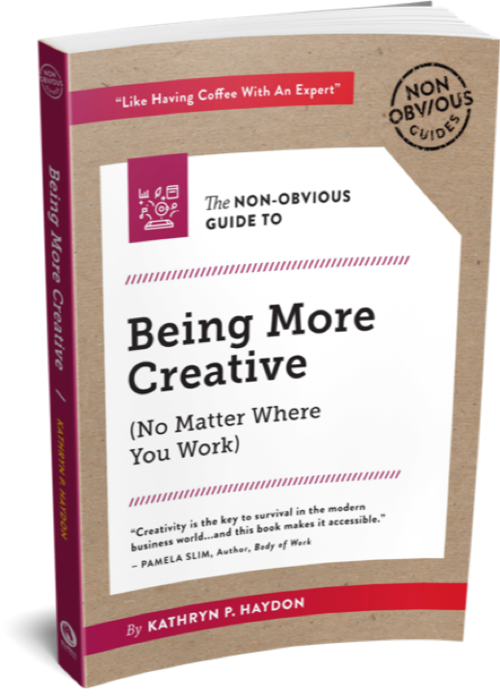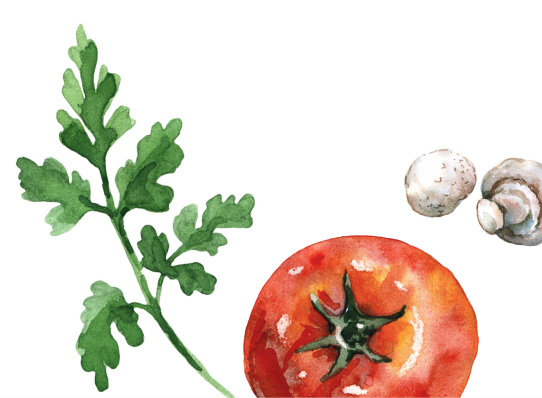Creating Possibility in Times of Change

At Great Performances, we embrace creativity and continue to look outside our walls to find inspiration from our friends and partners. We regularly invite innovators, creatives, business leaders, chefs and others to contribute their expertise to us and to our blog.
We’ve invited Kathryn P. Haydon, an expert in creativity, founder of Sparkitivity, and author of several books including The Non-Obvious Guide to Being More Creative, No Matter Where You Work, to guest author a blog post for us. Ms. Haydon shares how we can take steps to continue moving forward even in these challenging times.
CREATING POSSIBILITY IN TIMES OF CHANGE

In the midst of daily shifting information, it can feel as if you’re treading water in the middle of a deep lake. It might seem like you’ll never get to shore.
In The Non-Obvious Guide to Being More Creative, No Matter Where You Work, I defined creativity as: “breaking through the inertia of no by seeking new possibilities and finding valuable solutions.”
When you find yourself in the churning and uncertain waters of change, you can use the science of creativity as you would use water skis—to lift you atop the current, master the changing conditions, and keep moving forward. Here’s a cheat sheet on how to do it.
Set A Vision
The first step is to establish a vision. A vision gives you a horizon point toward which to move. It sparks feelings of hope and possibility.
Let’s go back to that churning lake. You are scared, you are cold, and you are tired of treading water. Ask yourself, What would be great?
It would be great if . . . I were standing on the shore outside of this lake.
Right now, in your current circumstances, what would be great?
What do you wish?
What is your ideal present condition?
Paint a vision with words:
It would be great if . . .
Turn Problems Into Possibilities
You have a vision; you see yourself standing on the shore of the lake rather than treading water within it. But presently, you are still stuck in the lake.
Turn that problem into a question that invites the new thinking necessary to create possibilities. Start your question with these six magic words: What might be all the ways . . . ?
I am stuck in the lake. => What might be all the ways to get out of this lake?
Even better, form your question to reach for your vision:
What might be all the ways to reach the shore of this lake?
See how merely asking the question in this way loosens the problem’s foothold? It opens the door to possibility!
Try it yourself. What problem are you facing that is keeping you from the vision you stated above? Turn it into a possibility question. Begin with:
What might be all the ways . . . ?
Suspend Judgment
Once you have posed your possibility question, it’s essential to be open to any and all possibilities that arise as you answer it. Silence criticism and allow bad ideas, good ideas, and crazy ideas all to surface.
As Alex Osborn, the inventor of brainstorming, said, “It is easier to tone down a wild idea than to think up a new one.” The toning down and refining will be done in the next step, but for now, keep dreaming up new possibilities.
How many ideas are enough? Sometimes you’ll want to set a timer and think up as many as possible in 5 or 10 minutes. Other times, you’ll aim for 15 ideas or for 100. It depends upon the nature of the challenge and how original you need to be to solve it.
Choose Your Idea And Make It Better
Once your bucket is filled with possibilities, it is time to look through it and consider which have the most potential. Take a clear look at your constraints and your criteria for success.
Don’t be afraid to consider working with an idea that appears impossible at first blush. Don’t be afraid to consider the crazy.
Don’t be afraid to try something that scares you just a little.
The process described above is tried and true. It is universally applicable to sticky problems at work or at home. Try it, and see what’s possible.

Related Posts
No records found for the
search criteria entered.
-

Leading with Purpose: Liz Neumark Recognized by Women at the Wheel
At Great Performances, we embrace creativity and continue to look outside our walls to find inspiration from our friends and...
-

Hidden Gems: La Bodega NYC in the Bronx
At Great Performances, we embrace creativity and continue to look outside our walls to find inspiration from our friends and...
-

Exciting Events Around New York - January 2026
At Great Performances, we embrace creativity and continue to look outside our walls to find inspiration from our friends and...








